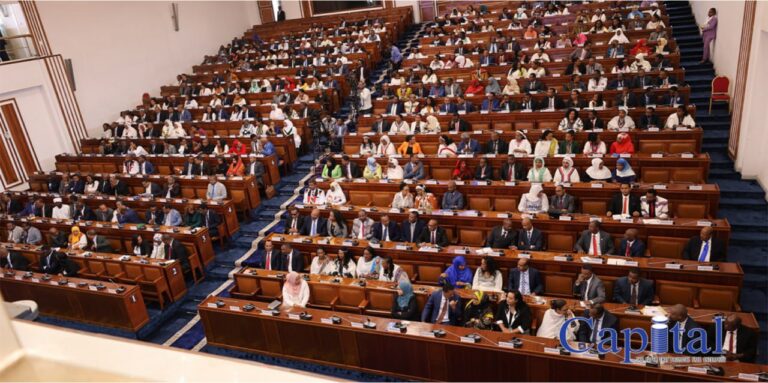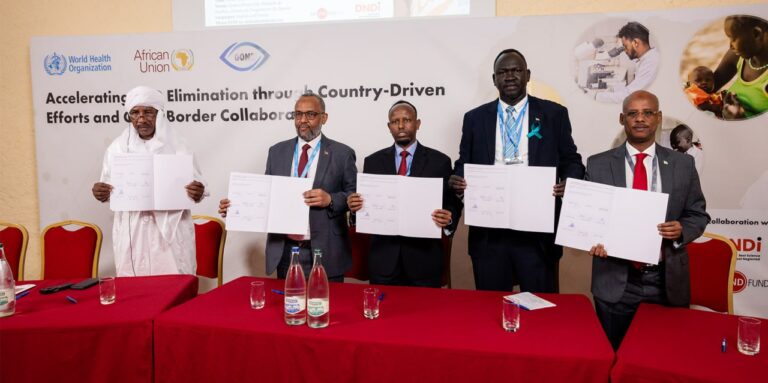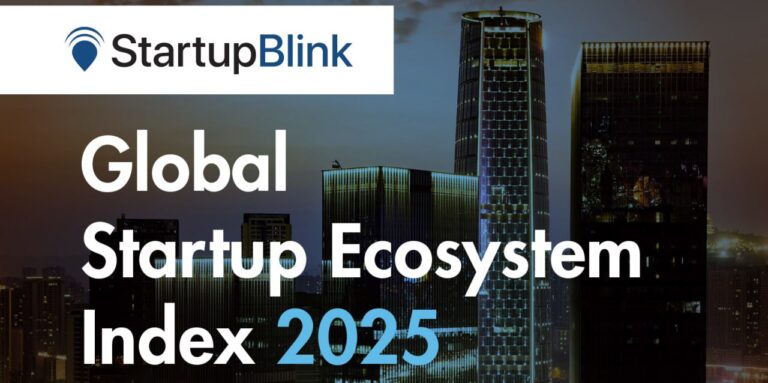A newly proposed draft proclamation aimed at regulating foreign ownership and occupation of real estate has ignited concerns that housing prices could soar further, worsening an already strained housing market and making homeownership increasingly difficult for local residents.The draft law, titled “Proclamation to Regulate the Ownership and Holding of Immovable Property by Foreign Nationals,” seeks to establish a legal framework allowing foreigners to own housing or acquire land for construction in the country. The government argues that the measure is necessary to meet growing housing demand and attract foreign investment to revitalize the real estate sector.Ethiopia has experienced rapid urbanization, population growth, and increased foreign investment in recent years. These trends, coupled with rural-to-urban migration and changing lifestyles, have fueled a surge in housing demand. Studies estimate that between 2015 and 2025, approximately 471,000 new homes are needed annually to bridge the housing gap.Currently, up to 64% of urban residents live in informal settlements due to the mismatch between housing supply and demand. The real estate market is expanding rapidly, with the total value projected to reach 47.4 billion birr by 2024 and expected to grow at an annual rate of 9.85% through 2028, reaching nearly 70 billion birr. Residential real estate transactions alone are forecasted to account for 36.89 billion birr in 2024.Globally, countries vary widely in how they regulate foreign ownership of land and property—some have liberalized policies, while others maintain strict controls. Ethiopia’s draft proclamation aims to strike a balance: encouraging foreign capital inflows without compromising the land ownership rights of its citizens.Under the proposed law, foreign investors—defined as individuals or entities owning at least $150,000 in paid-up capital of an investment—would be eligible to purchase real estate after obtaining permits from the Ministry of Urban Development and Construction. The minimum investment for purchasing or lease-to-own property is set at $150,000, with limits on the number of properties a foreigner can own to be determined by subsequent guidelines.Proponents view the draft proclamation as a vital step toward stimulating economic growth, expanding modern housing developments, and improving infrastructure such as electricity, water, security, health, and education. The Ethiopian Investment Board supports the initiative as a means to build investor confidence and maintain a positive investment climate.However, critics warn that allowing increased foreign ownership could drive up housing prices, further limiting affordability for Ethiopian citizens. Housing advocates urge the government to carefully monitor market dynamics and implement safeguards to prevent negative impacts on local residents’ cost of living.The draft proclamation is currently under review, with stakeholders calling for broad consultations to address public concerns and ensure that the law balances investment attraction with social equity.
Six African nations sign landmark pact to eliminate deadly Visceral Leishmaniasis
In a significant stride toward eradicating one of Africa’s deadliest neglected diseases, health ministers from Chad, Djibouti, Ethiopia, Somalia, South Sudan, and Sudan have signed a historic Memorandum of Understanding (MoU) to eliminate visceral leishmaniasis, also known as kala-azar. The agreement was formalized during a high-level ceremony organized by the African Union and the World Health Organization (WHO) on the sidelines of the 78th World Health Assembly in Geneva.Visceral leishmaniasis is a parasitic disease second only to malaria in terms of lethality. It causes fever, severe fatigue, weight loss, and enlargement of the spleen and liver, and is often fatal if untreated. The Eastern African region bears more than 70% of the global burden, with half of the affected being children under 15.The newly signed MoU commits the six countries to invest resources, develop regional strategies, and collaborate closely to achieve the elimination targets set out in the visceral leishmaniasis elimination framework, launched by Eastern African nations in June 2024.The event also saw Cameroon, Niger, Nigeria, Senegal, and Tanzania join the call for increased cross-border cooperation and collective action against other neglected tropical diseases (NTDs).

These diseases affect over a billion people annually, disproportionately impacting vulnerable and impoverished communities.“Diseases do not stop at borders — and neither should our response. More than 600 million people on our continent remain at risk of at least one of the neglected tropical diseases,” said Dr. Jean Kaseya, Director General of Africa CDC, in a statement delivered by Dr. Landry Tsague Dongmo.Significant progress has been made in the fight against NTDs: as of May 2025, 56 countries have eliminated at least one NTD, with recent successes in Mauritania, Chad, Guinea, and Niger. However, the interconnected nature of these diseases—often transmitted by animals and exacerbated by climate change and migration—means that regional cooperation is essential.Dr. Ibrahima Socé Fall, Director of the WHO Global Neglected Tropical Diseases Programme, emphasized, “The critical role of country-led efforts and cross-border collaboration in accelerating elimination cannot be overemphasized.”There is a pressing need for new, improved oral treatments for visceral leishmaniasis. Dr. Luis Pizarro, Executive Director of the Drugs for Neglected Diseases initiative (DNDi), highlighted the importance of medical innovation, citing the recent elimination of kala-azar in Bangladesh as proof that global eradication is possible.The Geneva event was spearheaded by the African Union Commission, the Global Onchocerciasis Network for Elimination (GONE), and WHO, with support from the END Fund and DNDi.
Ethiopia recognized as a rising contender in Global Startup Ecosystem Report 2025
Ethiopia is gaining international attention as a promising hub for innovation, with the recently released Startup Ecosystem Report 2025 highlighting the country among the world’s leading “Contender Ecosystems.” According to the report, these are countries with emerging startup scenes that have not yet reached the global top 100 but are demonstrating strong potential to join the ranks in future editions.The Global Startup Ecosystem Index 2025, published by StartupBlink, notes that Ethiopia’s ecosystem is rapidly evolving, driven by a surge in entrepreneurial activity, a growing pool of tech talent, and supportive government initiatives. “Contender Ecosystems” are specifically recognized for their momentum and capacity to make significant leaps in global rankings, and Ethiopia stands out as a notable example in this year’s analysis.The report credits Ethiopia’s progress to several factors, including increased collaboration between the public and private sectors, the rise of innovation hubs in cities like Addis Ababa, and a focus on digital infrastructure and policy reforms. The country’s population of over 120 million presents a vast untapped market, further fueling the interest of investors and ecosystem builders.“Ethiopia is showing remarkable growth and is well-positioned to break into the global top 100 startup ecosystems in the near future,” the report states. It also highlights the importance of maintaining momentum in Addis Ababa’s ecosystem while encouraging other cities to join the global startup map.The Startup Ecosystem Report 2025 emphasizes that contender countries like Ethiopia are critical to the future of global innovation, as they represent new frontiers for entrepreneurship and technology-driven development. The report encourages continued investment in talent, infrastructure, and regulatory improvements to help these ecosystems realize their full potential.
Nation advances renewable energy initiatives, solidifying African leadership position
Ethiopia is rapidly consolidating its position as one of Africa’s renewable energy champions, with recent reports highlighting both its impressive achievements and the challenges that lie ahead.According to the latest consolidated analysis by Okan Partners and the Africa CEO Forum, Ethiopia now ranks among the top five countries in Africa for renewable energy capacity, boasting an installed base of approximately 6 GW-surpassed only by South Africa and Egypt on the continent. The report notes, “Ethiopia is one of just five African countries where renewables make up over 80% of the national energy mix, with hydropower dominating the landscape”.This leadership is underpinned by a robust portfolio of 19 operational renewable energy facilities, including flagship projects such as the Grand Ethiopian Renaissance Dam (GERD) and the Aysha Wind Farm 2. Ethiopian Electric Power (EEP) reports that these plants currently generate 6,879 MW, with annual output reaching 23,059 GWh. The country’s total power production capacity is projected to more than double, from 5,656 MW today to 12,000 MW, as ongoing projects like GERD, Koisha Hydropower, and Asella Wind Power come online.Fisseha Getachew, Public Relations and Communication Manager at EEP, commented, “With the full completion of our major projects, Ethiopia’s annual electricity generation capacity will rise to 7,240 MW, positioning us as a continental leader in clean energy production”.Ethiopia’s renewable energy expansion is closely tied to its national development agenda. The government’s “Energy Africa Ethiopia Compact” aims for universal electricity access by 2025, with a target of 35% off-grid electrification. The Compact, refreshed in 2021, emphasizes coordinated donor support and policy alignment to boost off-grid investment and market conditions. “The collaborative approach is intended to generate donor commitment and increase support in the off-grid sector to help the Government of Ethiopia achieve universal electricity access by 2025,” the report states.Sustainability is also at the forefront. The Okan Partners report highlights Ethiopia’s Hawassa Industrial Park as a model for integrating green technologies, including zero liquid discharge water treatment and renewable energy supply. Such initiatives, the report argues, “can serve to attract greater investment by providing a competitive edge in the global market”.Despite these advances, the sector faces persistent hurdles. The Okan Partners and Africa CEO Forum analysis points to underdeveloped and unreliable energy networks as a critical bottleneck, noting that “80% of businesses in Sub-Saharan Africa face frequent power cuts.” Ethiopia, while ahead of many peers, is not immune to these issues, with public energy companies often overwhelmed and in need of infrastructure modernization and financial strengthening.Moreover, Africa as a whole attracts only 3% of global energy investment, a figure the report attributes to “unharmonized legal and regulatory frameworks” and “fragile political and economic situations, preventing the provision of solid financial guarantees”.






